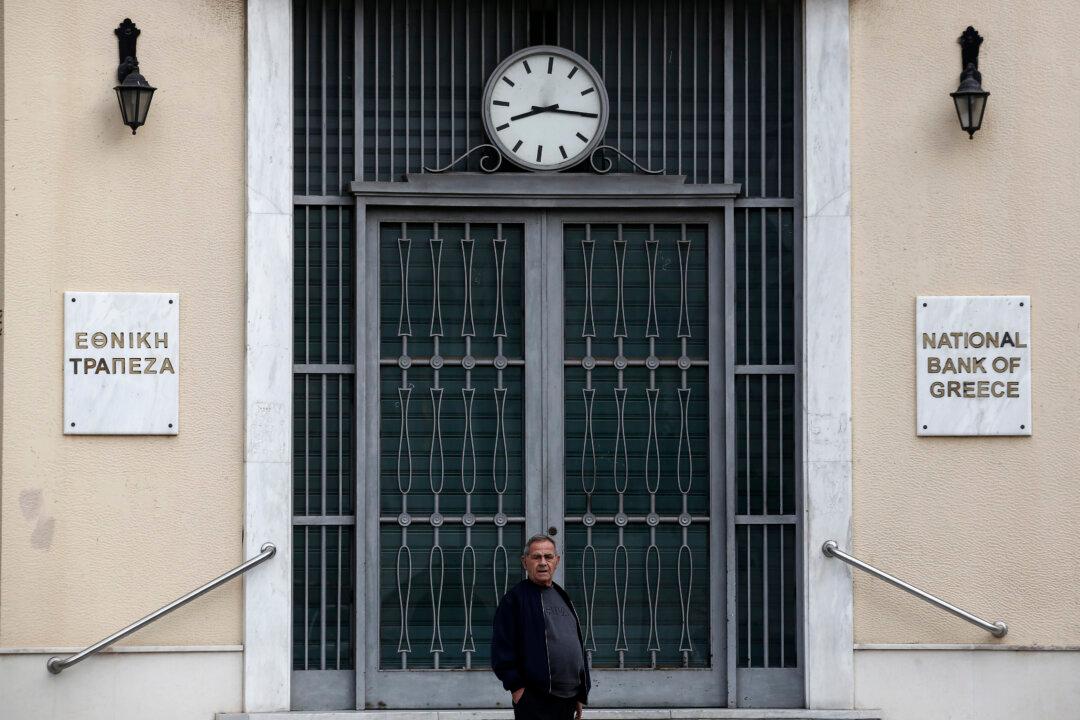FRANKFURT, Germany—The European Central Bank says Greece’s battered banks need 14.4 billion euros ($15.8 billion) in fresh money to get back on their feet and resume normal business.
The figure announced Saturday is the result of an ECB review of Greece’s four main banks following an agreement on the troubled country’s third bailout: 86 billion euros ($94.6 billion) from other eurozone governments in August. The review is an important step toward ending limits on bank customer withdrawals and transfers that continue to hamper businesses as the Greek economy struggles to recover.
The banks — Alpha Bank, Eurobank, National Bank of Greece and Piraeus Bank — now must submit plans to raise the money to boost their capital buffers against future financial turmoil and losses. Part of that capital could come from private investors; what can’t be raised from investors would come from bailout funds.
The financial hole the ECB found is smaller than originally feared. The bailout provided for up to 25 billion euros ($27.5 billion) to fix the banks.
Greece is racing to bail out the banks before year end, when new European bank bailout rules take effect that would require seizing deposits over the 100,000-euro ($110,000) limit on deposit insurance. That would sting big depositors such as small and medium sized businesses, which are already having enough trouble.
A bill allowing the recapitalization of banks was passed by voice vote in Greece’s Parliament Saturday.
The extreme right Golden Dawn and the Communist Party were the only dissenters in the eight-party legislature.
Deputy Prime Minister Yiannis Dragasakis said passage of the bill would avert seizure of deposits.
Greek finance minister Euclid Tsakalotos said that bank recapitalization and a viable solution to non-performing loans will both happen before the end of the year.
Tsakalotos told Parliament that the country’s Financial Stabilization Fund will obtain common bank shares, with voting rights.
“We would like to influence the banks’ policies, so that they do not invest in high-risk instruments. We do not want to influence top management appointments or to whom they should provide loans,” he said.
The ECB found the banks would need 4.4 billion euros under normal expectations and 14.4 billion euros if there is a more severe downturn in the Greek economy.
Greek banks have already been bailed out under Greece’s earlier bailout deals. But they suffered further losses as the country headed toward a third bailout this summer.
The number of business loans not being repaid increased as the economy deteriorated and investors fled. Depositors pulled out money fearing that Greece would be forced to leave the euro and leave them with a new currency worth much less.
The bailout deal staved off an exit from Europe’s shared euro currency. But limits on withdrawals and transfers imposed in June to prevent Greek banks from collapsing remain in place, though they have been loosened.





